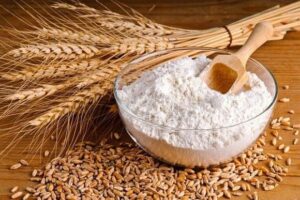
In July-January of 2024-2025 marketing year (MY), Ukraine exported 40.4 thsd tonnes of wheat flour, down 36.1% year-on-year, reports the Association of Millers, citing the State Customs Service.
According to the infographics published in Facebook, the export volumes in the season-24/25 are slightly lower than in the previous seasons – for 7 months of 2023/24 MY Ukraine exported 63.2 thsd tonnes of wheat flour, and in 2022/23 MY – 79.8 thsd tonnes.
At the same time, about 17.0 thsd tonnes were exported to the EU countries, almost 12.4 thsd tonnes – to Moldova, 8.1 thsd tonnes – to Palestine, 1.5 thsd tonnes – to Israel.
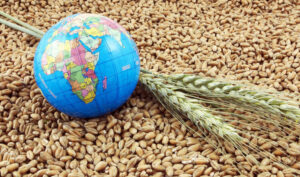
As of March 5, Ukraine exported 29.68 mln tonnes of grains and pulses since the beginning of 2024-2025 marketing year (MY, July-2024 – June-2025), of which 490 thsd tonnes were shipped this month, the press service of the Ministry of Agrarian Policy and Food reported, citing the State Customs Service.
According to the report, as of March 8 last year, the total shipments amounted to 30.989 mln tonnes, including 1.319 mln tonnes in March.
At the same time, since the beginning of the current season, Ukraine has exported 12.155 mln tonnes of wheat (12.375 mln tonnes in 2023/24 MY), 2.126 mln tonnes of barley (1.761 mln tonnes), 10.8 thsd tonnes of rye (1 thsd tonnes), and 14.924 mln tonnes of corn (16.569 mln tonnes).
The total export of Ukrainian flour since the beginning of the season as of March 5 is estimated at 49 thsd tonnes (in 2023/24 MY – 74.9 thsd tonnes), including 45.2 thsd tonnes of wheat (71.1 thsd tonnes).
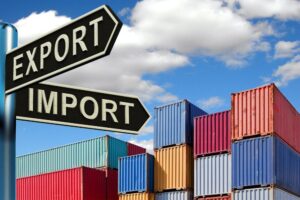
Trade between Ukraine and Poland amounted to $11.7 billion in 2024, of which Poland exported almost $7 billion to Ukraine and imported $4.6 billion worth of Ukrainian goods, Minister of Agrarian Policy and Food Vitaliy Koval said following the results of the Polish-Ukrainian dialogue.
According to him, the event was attended by representatives of Polish business, including Orlen and Anwil, with whom they discussed cooperation in the field of fertilizers and bioethanol development.
The minister said that Ukraine imports a total of 1.5 million tons of diesel fuel and gasoline from Poland and $354 million worth of mineral fertilizers.
“All these imports make up a large part of Ukrainian agricultural products. For example, to grow a ton of Ukrainian corn, we need to import 75% of the ingredients. That is, the profitability of international companies, including Polish ones, depends on the success of Ukrainian farmers,” the minister wrote on Telegram.
Koval expressed his belief in the importance of a dialogue between Ukrainian and Polish businesses. It should be based on numbers, cold reason, and mutually beneficial cooperation: the better Ukraine’s agricultural sector develops, the more benefits there will be for the Polish side and vice versa.
Kowal called on Polish businesses to invest in Ukraine’s agro-processing industry, which needs to increase the added value of its products.
“We appreciate the friends who were with us when it was hard, and these friends will be with us when it is easy. And it will be easy soon, because the darkest time is before dawn… We just need to endure. That is why he urged us to find common ground. After all, Ukraine is not a threat, Ukraine is a partner for moving forward,” summarized the Minister of Agrarian Policy.

Ukraine is a strategic partner of the EU and the world. While a significant part of the world’s land is becoming unsuitable for agriculture due to climate change and soil degradation, in Ukraine, with a total area of 60.35 million hectares, 42.73 million hectares or 70.8% of the territory is already used in agricultural production, according to SEEDS.
Dmytro Ustavytskyi, co-founder of the logistics company NIDERA AGRO, an expert in international logistics and innovative solutions, and industry leader of the NGO Svit.UA, writes about this in a blog on the Svit.UA website.
“Despite the realities of the war, grain exports from Ukraine are crucial for the food security of the world. This month, the EU is presenting the updated Common Agricultural Policy of the European Union, which will be adopted in 2028. Currently, it is being discussed that trade preferences introduced in 2022 due to the war should be extended until 2027, as the war continues.
According to the Ministry of Agriculture, in 2024, exports of agricultural products brought in $24.6 billion, which is 59% of the country’s total exports. Ukrainian farmers managed to increase exports by 12.5% compared to 2023. Sales of grains (+1.1 billion USD) and oilseeds (+0.5 billion USD) increased the most,” says Dmytro Ustavytskyi.
In his opinion, logistics in the agricultural sector of Ukraine plays a crucial role in ensuring food security both domestically and in foreign markets.
“Logistics covers the entire supply chain – from the delivery of seeds, fertilizers and machinery to producers to the transportation of crops to storage, processing, domestic markets and export terminals. Efficient logistics helps to minimize crop losses, preserve its quality and ensure competitive prices,” adds the expert on international logistics and innovative solutions.
Challenges of war: infrastructure losses and risks
Russia’s full-scale invasion has shown the critical importance of stable logistics. The destruction of transport infrastructure, blocking of sea routes, destruction of elevators and mining of agricultural land have complicated agricultural processes. However, Ukraine was able to adapt by expanding export routes through the Danube ports and alternative land corridors to the EU.
Export potential: opportunities and constraints
The European Union remains Ukraine’s main trading partner. Ukrainian grain helps to reduce food inflation in the EU.
“However, neighboring countries view the Ukrainian agricultural sector not only as a partner but also as a competitor, which makes it difficult to enter new European markets. Therefore, the issue of extending trade benefits for exporters and solving the problems of blocking borders is a priority.
Ukraine has significant export potential because of its high quality products. For example, the President of the Ukrainian Grain Association (UGA) conducted an audit in the EU and received positive feedback on the quality of Ukrainian grain, which is recognized as one of the best in Europe,” recalls Dmytro Ustavytskyi.
How medium-sized farmers can enter EU markets
“Ukrainian farmers now have the opportunity to sell grain to the EU without customs barriers. For example, a farmer with 500 hectares of land can supply products directly to processors in Italy. And now Ukrainian grain can reach San Martino in Italy in just 2 weeks!
Currently, 90% of Ukrainian grain (wheat and corn) is supplied to Italy, gradually displacing Russian products from the local market. This demonstrates the effectiveness of Ukrainian logistics, which is gradually integrating into the European infrastructure,” emphasizes the co-founder of the logistics company NIDERA AGRO.
Development of logistics infrastructure: the key to competitiveness
According to the expert, his team has now built a complete logistics chain for farmers:
“Today, farmers have a choice – to sell grain on the domestic market or to export on more favorable terms. Transparency of prices on trading platforms allows us to plan sales more efficiently, which reduces logistics costs,” adds Dmytro Ustavytskyi.
Financial opportunities for exporters
According to the expert in international logistics and innovative solutions, farmers have already learned how to work with foreign exchange contracts, which simplifies export operations. Banks have simplified the mechanism for servicing foreign currency accounts, which helps to avoid exchange rate risks.
“However, exports require certification and professional support. We help small producers to go through this process without risks by providing solutions for exporting consignments of 1,800 tons or more. Quality assurance is a key factor in successful exports,” says Dmytro Ustavytskyi.
Trade strategies and training for farmers
One of the common mistakes, the expert believes, is selling grain immediately after harvest, when prices are lowest. In his opinion, it is more profitable to store products and analyze the market to sell at the most favorable time.
In addition, further improvement of agro-logistics is impossible without investment in:
“At NGO Svit.UA, we are raising these issues and will be organizing meetings with the Ministry of Agrarian Policy to discuss the possibilities of state support for small and medium-sized farmers in entering international markets.
In times of war, export support for small and medium-sized farmers is becoming a strategically important area for food security and economic development.
Ukrainian producers remain important partners for the EU, so there must be a certain trade culture, because the main requirement of European buyers is honesty in terms of quality and quantity of products,” adds Dmytro Ustavytskyi.
In his opinion, Ukraine has unique opportunities to integrate into the European market even despite the challenges of war. Investments in logistics, digital solutions and international cooperation will help make this process efficient and profitable for Ukrainian farmers.
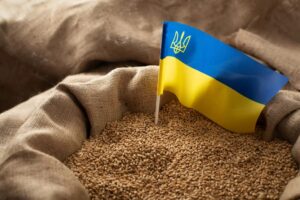
As of February 28, Ukraine exported 28.853 mln tonnes of grains and pulses since the beginning of 2024/25 marketing year (MY, July 2024 – June 2025), of which 3.162 mln tonnes were shipped this month, the press service of the Ministry of Agrarian Policy and Food reported, citing the data of the State Customs Service.
According to the report, as of the same date last year, the total shipments amounted to 29.136 mln tonnes, including 5.26 mln tonnes in February-2024.
At the same time, since the beginning of the current season, Ukraine has exported 11.883 mln tonnes of wheat (11.449 mln tonnes in 2023/24 MY), 2.124 mln tonnes of barley (1.597 mln tonnes), 10.8 thsd tonnes of rye (1 thsd tonnes), and 14.405 mln tonnes of corn (15.671 mln tonnes).
The total export of Ukrainian flour since the beginning of the season as of February 24 is estimated at 46.4 thsd tonnes (in 2023/24 MY – 73 thsd tonnes), including wheat – 42.9 thsd tonnes (69.3 thsd tonnes).
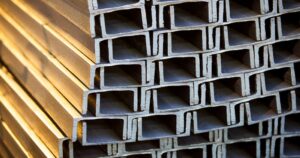
Dnipro Metallurgical Plant (DMZ), a part of DCH Steel of businessman Aleksandr Yaroslavsky’s DCH Group, has resumed exports of European sections that had been suspended since the beginning of the war.
According to a report in DCH Steel’s corporate newspaper on Thursday, since the start of the full-scale invasion, the company has not been able to sell its products for export, as such supplies were mostly unprofitable. During this time, Euro profiles were produced at Rolling Shop No. 2 only in the summer of 2023 at the request of Metinvest.
It is also reported that during the first rolling campaign of the year, Rolling Shop No. 2 produced 7.1 thousand tons of products for Ukrainian and foreign consumers. The production campaign started on January 31 and lasted for two weeks seven days a week. It was planned to start work in mid-January, but the timing had to be adjusted due to a delay in the supply of billets for the export batch of rolled products.
During the winter campaign, the shop produced about 5,000 tons of channels under a standard tolling scheme for the Ukrainian market and 2,000 tons of products for European countries. To produce Euro profiles, we purchased a long billet and cut it into multiple lengths – this is the first time such work has been done at Mill 550, previously it was performed at Rolling Shop No. 1.
For the first time, commercial batches of channels were made from cast squares, and the production of export products from this type of billet was launched in 2024.
“Over the past two years, the rollers have done a lot of work to switch from rolled to cast billets. This made it possible to reduce production costs. Now we are continuing this work: during the winter campaign, the shop mastered the production of channel 22 from a cast billet with a cross section of 200×200 mm. Previously, this type of profile was made exclusively from rolled billets of 135×280, so suppliers had to additionally roll the billets produced by the CCM to the required parameters. The experiment was successful, and in the next campaign we plan to produce a commercial batch of channel 22 from a cast billet,” explained Yuriy Mikhailov, Deputy General Director for Metallurgical Production.
The plant continued experiments to master the production of R-34 rail products, which were previously manufactured at Mill 800: the billet was rolled through the first stand and templates were taken for analysis.
“The campaign lasted longer than planned due to the experiments and certain difficulties encountered when rolling channels from cast billets. There were stoppages due to breakdowns of crane equipment and the lower shaft of stand No. 7. But in general, the shop was well prepared and worked well. Almost all of the products have been shipped to customers, and we have no comments on quality,” stated Mikhailov.
Rolling Shop No. 2 is currently repairing equipment to ensure that the next production cycle is efficiently run. The second rolling campaign is expected to start in March-April.
It is also reported that all channels in accordance with DSTU 10 to 22 and the main range of Euro profiles have been converted to cast billets at Mill 550. In the next rolling campaign, the shop plans to launch production of 24 channels from cast squares. In January-February, Rolling Shop No. 2 rolled channels 10 to 30 for Ukrainian customers and Euro channels U 120, U 140, U 160, U 180 and U 200.
DMZ specializes in the production of steel, cast iron, rolled products and products made from them.
On March 1, 2018, DCH Group signed an agreement to buy Dnipro Metallurgical Plant from Evraz.